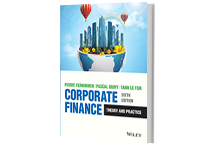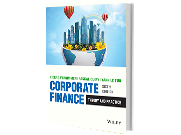Comment, question or quotation of the day
07-02-2026 : Dear safe haven
For over 4,000 years, gold has been seen as a safe haven asset. And it's unlikely that this status will be challenged, even by the recent fluctuations in its price: a 25% rise in January, followed by a 15% drop in two days, then a 5% rebound.
Its status as a safe haven asset stems historically from its intrinsic physical qualities, the fascination it holds for humans and, more recently, since the advent of stock markets, its lack of correlation with equity investments. If we go back to the creation of the CAC 40 index on 31 December 1987, the correlation between the daily returns on an ounce of gold and those of the CAC 40 with dividends reinvested is -0.03. This theoretically makes gold an excellent diversification asset, as its fluctuations are completely independent of those of the Paris stock market, and even vary slightly in the opposite direction.
Theoretically, however, as few portfolios contain enough gold for its inclusion to have a significant impact in terms of risk reduction. Indeed, when we read asset allocation advice from fund managers, their target is often around 5% of a portfolio. It is true that for those with a long-term view, and given that gold is cyclical, the contribution to risk reduction is accompanied by a reduction in performance.
Since the end of 1987, the CAC 40 index with dividends reinvested has grown by an average of 9% per year, with a standard deviation of 1.3%. Gold, on the other hand, over the same period of just over 38 years, has yielded 6.5% per annum in euros, with a standard deviation of 1% in its daily returns.
Anyone who invested €1,000 in the CAC 40 at the end of 1987 and reinvested the dividends received now holds €26,530. The same €1,000 invested in gold is now worth €11,000, or 2.4 times less than the CAC 40 with dividends reinvested. While the difference in annual returns between the CAC 40 and gold may seem small at 2.5%, its impact over 38 years is immeasurably greater.
For the American investor who invested in the S&P 500 with dividends reinvested, the annual return has been 11.3% since the end of 1987, with a standard deviation of daily returns of 1.1%, not very different from that of gold (1%). And their share portfolio is now worth $58,800 compared to $10,100 for the gold investment, almost six times more.
The title of this post, "dear safe haven," is not an assessment of the current price of gold, which I am structurally incapable of assessing. It refers to the fact that holding gold has a significant opportunity cost due to its low long-term returns, even though it is currently close to its historic highs, while its volatility is not very different from that of the equity markets.
10-01-2026 : Revolut, the price of liquidity and salary infidelity
Revolut is one example among many of start-ups that have managed to capture a significant share of their market, demonstrate the relevance of their business model and continue to be financed by investment funds without going public, despite being profitable ($1.4 billion before tax). To the point that the term "start-up" no longer applies to Revolut.
For a number of investors, this raises the question of the liquidity of their holdings, which can be organised by the investors themselves outside the stock market, and/or by the company itself, particularly when its own employees or former employees are involved.
Before Christmas, Revolut allowed its former employees to sell their shares at 70% of the price of the last capital increase in November 2025 (with a value of £75 billion for 100% of the capital).
This 30% discount for a secondary transaction compared to a primary transaction is frequently observed in the world of start-ups (the real ones, those that are losing money and have not yet established the relevance of their business model). The rationale behind this is that a primary transaction, by providing equity capital to the start-up, gives it additional time to demonstrate the relevance of its business model, which is obviously not possible in a secondary transaction. Therefore, a shareholder in the start-up prefers to contribute funds to the start-up rather than to a co-shareholder who is selling. However, to encourage them to acquire existing shares that do not provide any liquidity to the start-up, the outgoing shareholder will have to agree to a discount. And the observed practice sets this at around 30%.
Part of the November transaction involved shares sold by current employees, but without a discount on the €75 billion valuation. Even though Revolut appears to be considering an IPO, the 30% discount seems thus high for a group that is no longer a start-up. It just goes to show that employee disloyalty comes at a price!


Glossary
The Vernimmen.com glossary provides definitions for a couple of thousands of financial, stock market or economic terms.
This financial dictionary allows beginners to progress in their learning of finance and to experts to cease the precise meaning of a sentence.

Quiz
The Vernimmen.com Quiz offers over 300 questions with answers to progress in your understanding of finance and to test your knowledge.
Questions are sorted by key topics (financial analysis, investment and stock markets, value, financial engineering and financial management).

Survey
We frequently ask our readers to give us their point of view on a specific topic.
You will find here the current survey with the to-date status of answers as well as past polls.

Financial data
Thanks to our partner Infinancial, we can offer on this page financial data on over 16 000 groups around the world.
Updated several times a year, this database offers information sometimes hard to find elsewhere (beta, …)
The Vernimmen.com Letter
Number 169 of December 2025
News : Capital increases without preferential subscription rights of listed companies carried out by ABB
Statistics : Securitisation in Europe and the US
Research : Payment terms, predictive signals of stock market returns
Q&A : What is a coop agreement?
COMMENTS : Comments posted on Facebook



